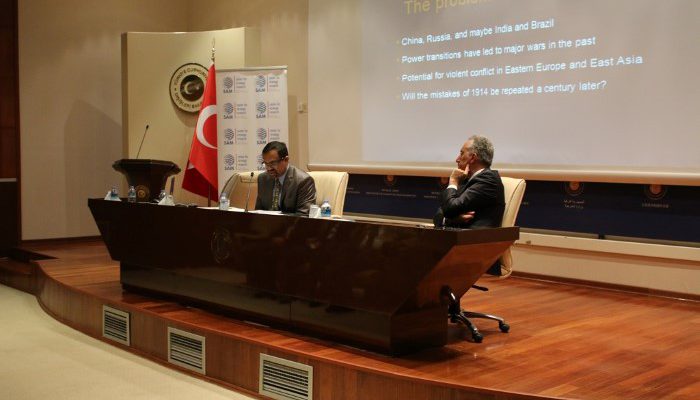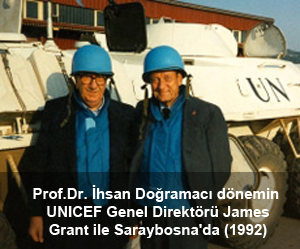The Center for Strategic Research of the Turkish Ministry of Foreign Affairs (SAM) and the Center for Foreign Policy and Peace Research (CFPPR) jointly organized a seminar at the Fatin Rüştü Zorlu Hall in the Turkish Foreign Ministry on May 21, 2015. As a guest speaker of the seminar, Professor Dr. T.V. Paul, President-elect of the International Studies Association (ISA) for 2015-2016 and James McGill Professor of International Relations in the department of Political Science at McGill University, made a presentation on the subject of “Is Peaceful Accommodation of Rising Powers Possible?”
Professor Paul’s talk started with the question of whether peaceful accommodation of rising powers is theoretically possible or not in the changed international order. More specifically, since non-violent accommodation is very rare throughout history, he spoke of how today’s power transition processes in East Asia and Eastern Europe present a global conflict potential. Considering this as a significant but less discussed problem, he proposed ways of creating legitimate accommodation that many countries can accept for peaceful change.
In the second part of his talk, Professor Paul addressed mainstream theories of International Relations to explore whether those theories have come up with ideas for explaining peaceful accommodation. He implied that liberal, realist, and constructivist theories have not been successful in explaining peaceful change and are prone to producing either vicious conflicts or legitimacy deficits that rising powers have to face. In addition to IR theories, he also pointed out how the internal political order of a rising power as a factor itself may constrain peaceful change.
Professor Paul concluded his presentation by arguing that peaceful accommodation is possible through pursuing grand strategies of change by both the established and rising powers. A peaceful change, he suggests, is possible with a mixed strategy that requires global actors to adapt mutual acceptance of each other’s values, provide areas of influence, intensify economic interdependence, and allow rising powers to have effective roles in global institutions.





